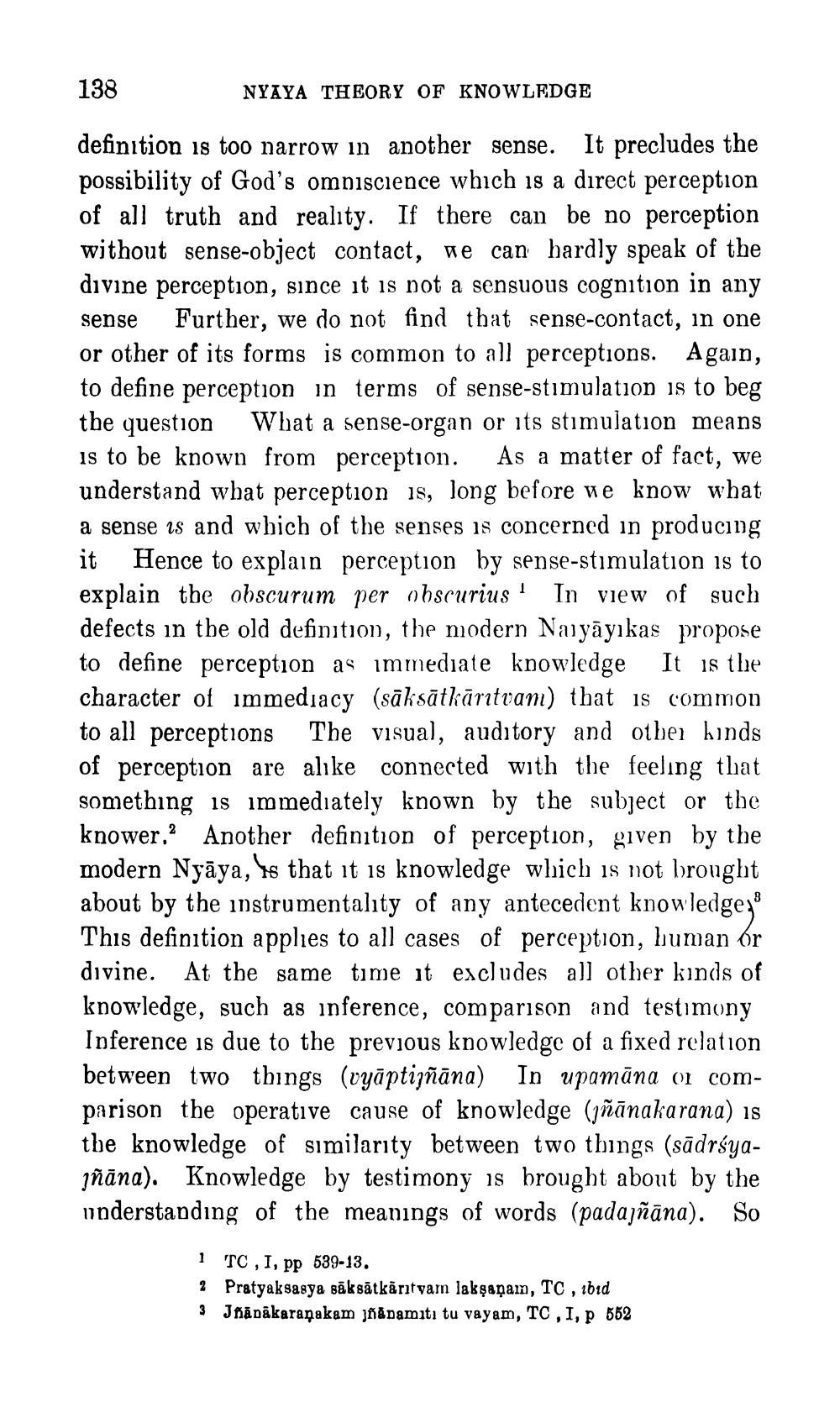________________
138
NYAYA THEORY OF KNOWLEDGE
definition is too narrow in another sense. It precludes the possibility of God's omniscience which is a direct perception of all truth and reality. If there can be no perception without sense-object contact, we can hardly speak of the divine perception, since it is not a sensuous cognition in any sense Further, we do not find that sense-contact, in one or other of its forms is common to all perceptions. Again, to define perception in terms of sense-stimulation is to beg the question What a sense-organ or its stimulation means is to be known from perception. As a matter of fact, we understand what perception is, long before we know what a sense is and which of the senses is concerned in producing it Hence to explain perception by sense-stimulation is to explain the obscurum per obscurius ' In view of such defects in the old definition, the modern Naiyāyikas propose to define perception as immediate knowledge It is the character of immediacy (sāksātkāritvam) that is common to all perceptions The visual, auditory and other binds of perception are alıke connected with the feeling that something is immediately known by the subject or the knower. Another definition of perception, given by the modern Nyāya, Is that it is knowledge which is not brought about by the instrumentality of any antecedent knowledge, This definition applies to all cases of perception, human 6r divine. At the same time it excludes all other kinds of knowledge, such as inference, comparison and testimony Inference is due to the previous knowledge of a fixed relation between two things (vyāptijñāna) In upamāna or comparison the operative cause of knowledge (jñānakarana) is the knowledge of similarity between two things (sādrśyajñāna). Knowledge by testimony is brought about by the understanding of the meanings of words (padajñāna). So
1 TC , I, pp 539-13. 2 Pratyaksasya sāksātkåritvam lakşanan, TC , ibid 3 Jhāpäkaranakam jāpamiti tu vayam, TC, I, p 562




